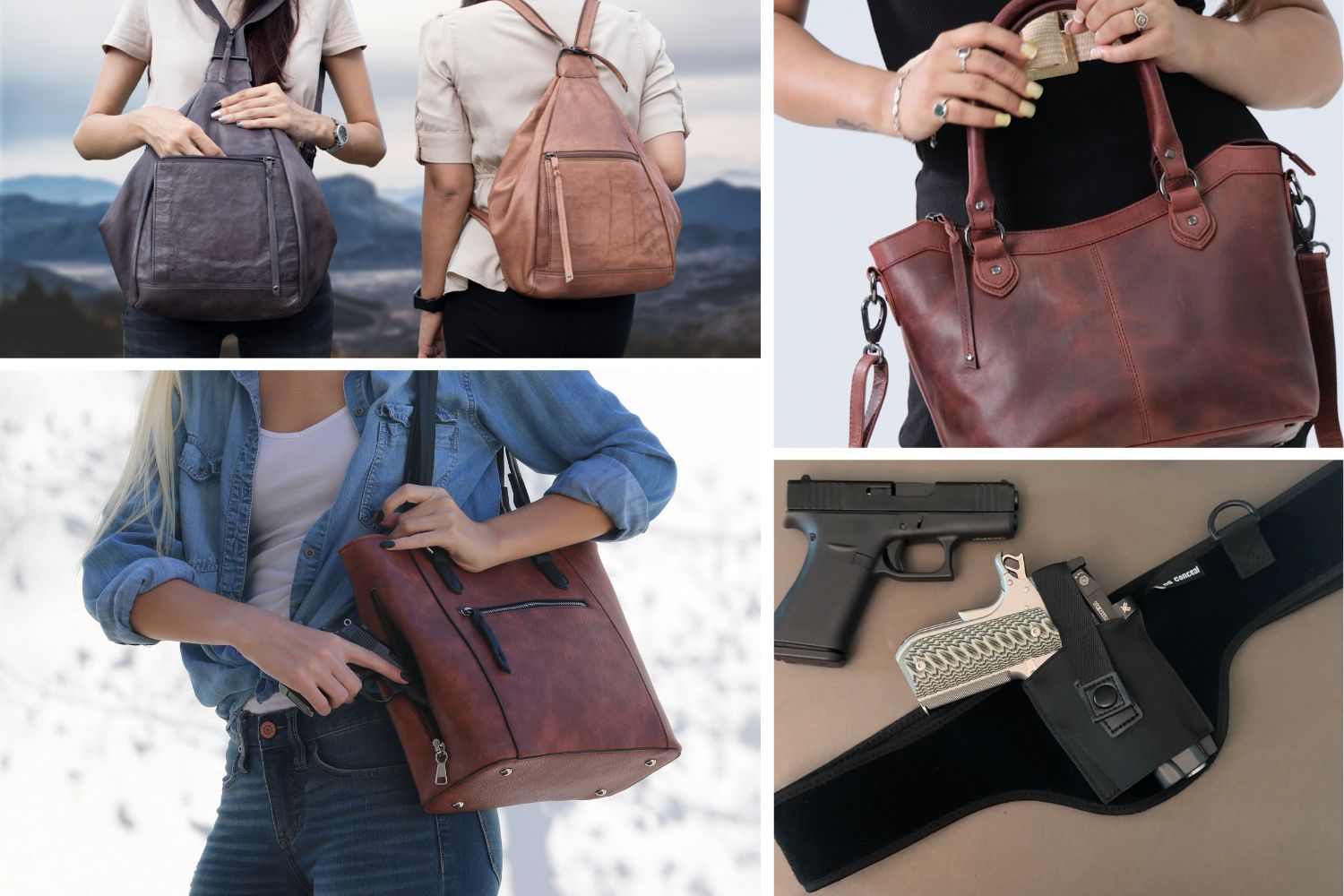Concealed carry is becoming increasingly popular as individuals look for ways to protect themselves and their loved ones. Whether you're new to carrying a firearm or looking to upgrade your equipment, understanding the laws, benefits, and accessories is essential. In this guide, we'll cover everything you need to know about concealed carry—from laws and holster options to tips for safe and effective carrying.
Understanding Concealed Carry Laws
Concealed carry laws vary significantly from state to state. Some states have "constitutional carry" laws, which allow individuals to carry without a permit, while others require background checks, training, and permits. Before carrying, it's crucial to research your state's specific requirements.
Key Points to Consider:
- Permit Types: Some states offer "shall issue" permits, meaning if you meet the criteria, you will receive a permit. Others have "may issue" policies, where authorities have discretion.
- Reciprocity: If you travel, be aware of states that honor your concealed carry permit. Not all states recognize out-of-state permits.
- Local Restrictions: Some municipalities may have additional regulations regarding where you can carry.
Why You Should Consider Concealed Carry
Carrying a firearm for self-defense can provide peace of mind, knowing you have the means to protect yourself. Beyond self-defense, concealed carry offers the following benefits:
- Preparedness: You’re always ready to act in case of an emergency.
- Deterrent: Simply knowing that people may be armed can deter criminals.
- Empowerment: Being in control of your own safety fosters confidence.
Choosing the Right Concealed Carry Holster
The right holster is critical to a safe and comfortable carrying experience. Here are some popular types of holsters to consider:
- Inside-the-Waistband (IWB): This is the most common holster for concealed carry. It’s worn inside your pants, making it easy to hide under clothing.
- Outside-the-Waistband (OWB): Worn outside your waistband, this option is comfortable but requires a long shirt or jacket for proper concealment.
- Shoulder Holster: Ideal for wearing under a jacket, shoulder holsters distribute the weight of your firearm across your shoulders.
- Belly Band: Perfect for active individuals, a belly band is a flexible option that wraps around your torso.
Make sure to select a holster that fits your firearm, offers quick access, and remains comfortable for daily use.
Concealed Carry Fashion: How to Stay Stylish and Safe
Concealed carry doesn’t mean you have to compromise your style. Companies like Lady Conceal offer a variety of stylish concealed carry bags that combine fashion and function. From leather crossbody bags to classic hobo purses, these accessories ensure your firearm is secure and accessible without sacrificing aesthetics.
Fashion Tips for Concealed Carry:
- Dress for Comfort: When choosing clothing, opt for items that allow for easy movement and concealment, such as loose-fitting shirts or jackets.
- Utilize Concealed Carry Accessories: In addition to holsters, consider specialized belts, leggings, or purses designed to hide your firearm.
- Layering: Adding layers, like a scarf or jacket, can help cover your holster while also enhancing your look.
Training for Safe and Effective Concealed Carry
Carrying a firearm is a huge responsibility. Make sure you’re properly trained in the following areas:
- Firearm Safety: Always keep your firearm pointed in a safe direction and your finger off the trigger until you’re ready to shoot.
- Situational Awareness: Knowing your surroundings and potential threats is key to effective self-defense.
- Practice Drawing: You should be comfortable drawing and firing your weapon under stress. Regular practice at the range is essential.
Consider enrolling in a concealed carry class in your area to hone your skills.
Concealed Carry Insurance: Is It Worth It?
One topic that's gaining traction in the concealed carry community is insurance. Concealed carry insurance provides legal protection in the event you have to use your firearm in self-defense. Policies can cover attorney fees, court costs, and even compensation for lost wages if you're forced to defend yourself legally.
Conclusion
Concealed carry is a personal decision that comes with significant responsibility. Understanding the laws, choosing the right holster, dressing appropriately, and staying trained are all vital components of safe and effective concealed carry. Whether you’re just starting or looking to improve your experience, always prioritize safety and legal compliance.
By following these tips and investing in the right gear, you can carry confidently, knowing you're prepared to protect yourself in any situation.











Leave a comment
This site is protected by hCaptcha and the hCaptcha Privacy Policy and Terms of Service apply.